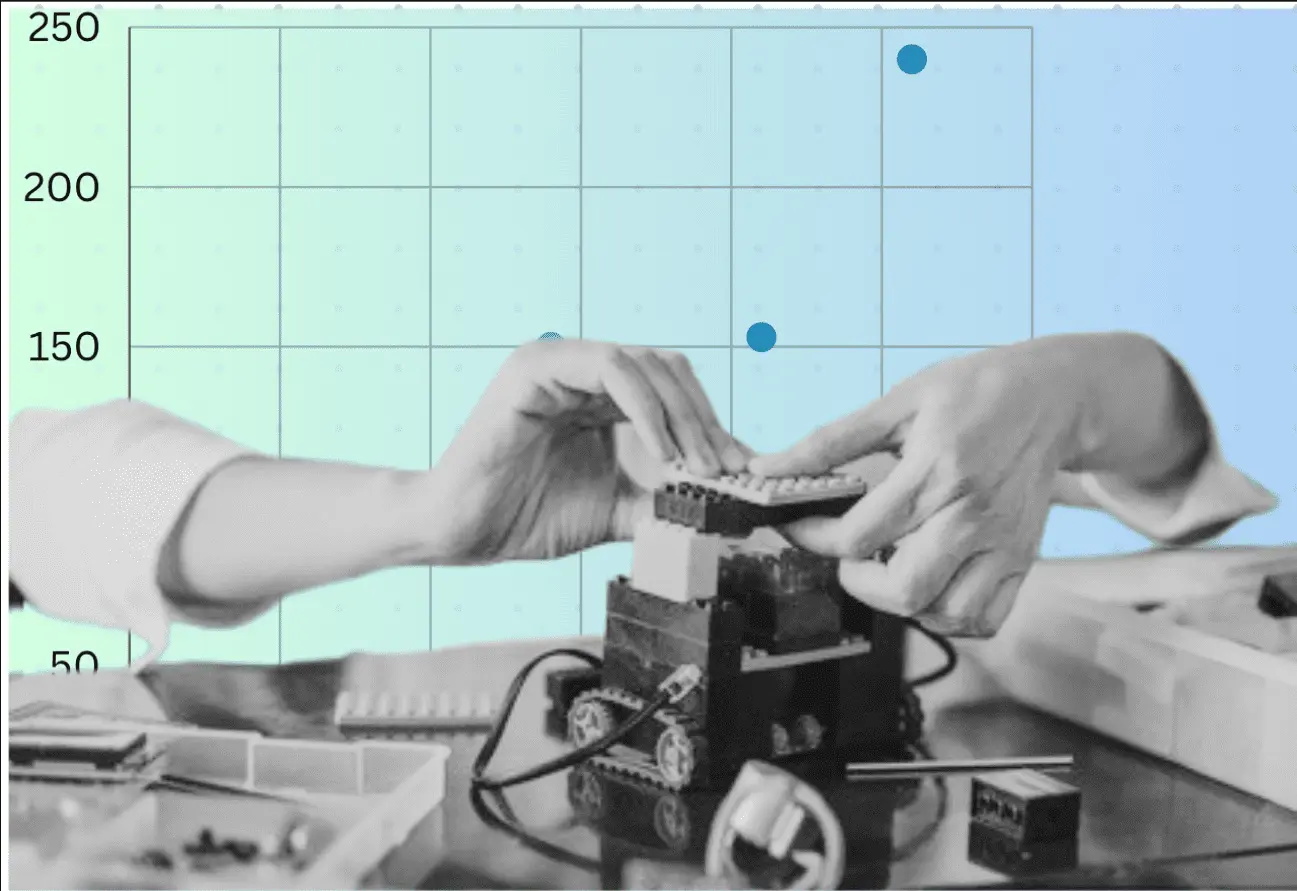Someone to Play the Fool: How AI is Reshaping the Concept of Software Design.

Written by Ivana, Head of Product at Byte.ai
AI isn't just knocking on the door of the software design and IT sectors; it's already sitting at the desk, and rewriting the rulebook on what it means to develop software. The irony? As AI streamlines our workflows, making us faster and freeing us up from routines to tackle more creative challenges, it's also setting a new baseline for productivity. Suddenly, doing your job well isn't just about meeting deadlines; it's about pushing the boundaries of what's possible when the mundane is automated.
You're behind the steering wheel & no one knows how to drive
Expectations soar. "If AI can do that," your boss considers, "what more can you do?". On one side, you now become a solution architect, a creative mind conducting the development process. On the flip side, there's a silent but growing pressure to continually justify our place alongside these digital prodigies. What if you just wanted to write code?
You cannot Ctrl+Z Ai. 44% of organisations worldwide are working to embed AI into current applications and processes, with two-thirds of companies already using AI. GitHub data shows that 41% of all code is now generated by AI. But Engineering is not defined by writing code. So, it's time to think: "What's your next trick?".
Go Mad Max or drop out of the race
Jump on the Ai train, and you will be part of the new Software Engineering and design era, easily highered, quickly learning and scaling your brain with new creative convolutions. Basically, you have automatically been raised to a team lead, and your team is the Ai pythacanthropus.

Or, you can always drop out of the race. Remember, there are still engineers working with Assembler. There are unicorn companies still putting low-level code, and hardcore computer interaction job postings out there. Although Devops is vastly growing, there are still servers requiring direct system administration.
There are companies and entire industries working on old rules. Banking, finance, and national security. Industrial corporations, working on waterfall buisiness plan's since 1980's. The old rules work for these titans and the market in which they sit, requiring developers and engineers who know the old rule framework. These industries will probably not adopt adopt Ai for at least the next 10 years or more.
Reasons are beyond conservativeness - Ai models can be hijacked and are not a 100% secure, there are powerful systems and flows which are hard (and, probably, unreasonable) to innovate, and simply put - a lack of need or problem that Ai can solve. There is a niche that is untouched by Ai, and will be for a while to come. There are backup options.
Don't blame Ai for the automation game.

Actually, Ai isn't all the rage right now. Automation has been around for a while now, with many companies leveraging no-code tools for internal or external developments. This is extremely useful for companies building fast products, testing mvps, working out Proof of Concepts. Of course, most of these platforms require Product design - as you need to know what you are building and for whom; Solution design - as you need to understand how to build it to be sustainable and scalable based on the product goals , and UI/UX design, as you need to make it usable and pleasant for the end user.
And yet, companies leveraging no-code or low-code potentially save hundreds on product development. Here are some of the buzzproducts:
- Zapier: Okay, say you have zero code experience, no time to build with a client waiting, and a handful of apps to stick together for a working idea. Zapier lets you create complex automations between over 3,000 apps, connecting different parts of your tech stack. And you focus on the logic only.
- Retool: Retool offers a fast way to build internal tools with its drag-and-drop interface, shrinking development time. For a product i've built, it has changed the interface development time from 240 to 46 hours, no joke. And what appalled me is that it's not just a customizable, SQL-speaking drag n' drop, it allows to call APIs, create different levels of access and create conditional app flows. And, as a Product Lead with no coding experience, I am physically able to do that (although engineers do it better).
- Supabase: Layed-back back-end is kind of old, and most developers in the fast and furious IT landscape sooner or later face the issue of “we need to set it up in two days. It's for MVP. No time to think”. Supabase provides you and your team with a scalable backend complete with database management, authentication, real-time capabilities, all without writing complex server-side code, nothing short of revolutionary. And as a Product Lead, what the development team is doing is kind of becoming obvious, so we cooperate faster and clearer. We are using Supabase for our infrastructure at Byte, because we are a 2-engineer, 1 product team.
- Shopify: If you're in e-commerce, from small startups to large enterprises, you don't need to break your brain about the development anymore. You just create your online store, with Shopify tools that cover everything from product listings and payments to shipping and customer engagement. The ability to quickly launch a visually appealing, fully functional online store without any coding knowledge eliminates the technical barriers to setting up and managing an online store.
- Webflow: This one is for our design and front-end team. Actually, it kind of replaces the development part for landing pages, empowering designers to develop their creative ideas into working webpages, creating all-in-one design opportunities.
I was tempted to put Byte.ai as a 6th platform, but we're still on our way as I write this. What we want to do with Byte, is to assign you what you do best (or have to do best, according to this article) - software solution and architechture design. And then - take Ai, give it context from what you build, wrote and planned, and let it generate the classes for your modules. We also want to do what Zapier does for integrations - but with one persona: the software engineer. We want to automate the way you code, save you 30 hrs/week of time (we are ready to put a bet on it), and make it interesting.
Let's conclude.
Embrace Ai or flunk it. If you take the challenge - your role & responsibilities will definitely change. If you give it a pass - you might miss out on new opportunities and drop out of the new-tech race. The transition to leveraging AI, no-code, and low-code platforms not only accelerates product development but also demands a higher level of strategic thinking and creative problem-solving from Software Engineers. Meanwhile, traditional sectors remain bastions of conventional tools and framework, giving a place to rest for those who are tired of running. Pick your side!